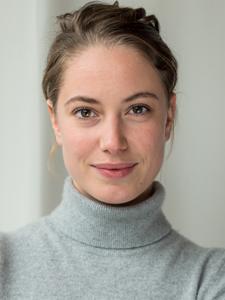Wake perception during sleep is common and healthy
Research led by the Geneva University Hospitals (HUG), the University of Geneva (UNIGE) and the Universitäre Psychiatrische Dienste Bern (UPD) at the University of Bern (UNIBE) suggests that direct sleep-wake perception and regulatory systems are often intact in patients with insomnia disorder. This finding highlights the opportunity for patients and healthcare providers to contribute to improvements of sleep related complaints through cognitive behavioral therapy for insomnia (CBT-I) – the recommended first-line treatment for insomnia – rather than medication-based treatment. Results to read in the journal Scientific Reports.
Sleep is essential for healthy functioning. Insomnia disorder is prevalent, affecting around 5 to 10% of the adult population. The primary issue is a subjective complaint of reduced quantity or quality of sleep, which is often not observed in objective sleep measurements.
Research lead by Carlotta Schneider, PhD student and assistant psychologist at UPD and UNIGE, in the research group of Prof. Christoph Nissen, Chief-physician of the Division of psychiatric specialties and Director of the Sleep medicine center (HUG), and Full Professor in the Department of psychiatry at the UNIGE Faculty of Medicine, studied sleep and serial deliberate awakenings in a sleep laboratory setting. The study involved 30 healthy participants and 30 patients with insomnia disorder.
After two nights dedicated to adaptation and sleep data collection, on a subsequent experimental night, participants in both groups were awakened up to 12 times during non-rapid eye movement (NREM) sleep via a vibrating bracelet and asked about their perception of having been asleep or awake through an automated interview.
Intact sleep-wake regulatory systems
In approximately half of the awakenings, participants in both groups reported that they had been asleep, whereas in the other half, they stated that they had been awake. High-frequency brain activity during sleep, considered an index of arousal, was associated with the perception of having been awake across groups. Although patients reported substantial subjective complaints about their sleep, objective sleep parameters and direct sleep-wake perception did not significantly differ from those of healthy participants.
The results are in line with emerging concepts of a physiological persistence of wake-like activity during sleep (sleep–wake continuum) that transcends traditional views of exclusive sleep–wake boundaries. The results also support other findings suggesting that sleep-wake regulatory systems, as assessed by current standard measures of sleep, are often intact in patients with insomnia disorder. Rather, the complaints appear to develop over time through sustained cognitive, emotional and behavioral mechanisms, which need to be further tested.
These results have potential implications for concepts of insomnia disorder and sleep-wake regulation, as well as future treatment developments. They support the notion that many patients, after exclusion of specific organic sleep or other disorders, can learn to improve their sleep-related difficulties through CBT-I, the current first-line treatment. Pharmacotherapy can be offered for short-term treatment, but can be associated with the risk of side-effects, tolerance and dependence. Further studies are currently underway on the concept of a sleep–wake continuum, potential subgroups of patients, and broader implementation of CBT-I.
Publication detailsCarlotta L. Schneider, Kristoffer D. Fehér, Elisabeth Hertenstein, Fabian Hügli, Marina Wunderlin, Marc A. Züst, Christian Mikutta, Antoine R. Adamantidis, Thomas Berger, Dieter Riemann, Bernd Feige & Christoph Nissen: Multimodal assessment of sleep-wake perception in insomnia disorder. Nature Scientific Reports. Published online 5 June 2025 |
About the UPDUniversitäre Psychiatrische Dienste Bern (UPD) AG is the competence center for psychiatry and psychotherapy in the Canton of Bern. With over 1,900 employees at more than 25 locations, UPD offers the entire range of psychiatric care, from early diagnosis and outpatient care, day-care and inpatient treatment to the rehabilitation and reintegration of people with mental illness. The four university clinics and the Psychiatric Rehabilitation Center offer a broad spectrum of specialised services. As a university hospital, UPD has an extended mandate in specialised psychiatric care, teaching and research as well as education, training and further development. |
Quelle: HUG
2025/06/05


